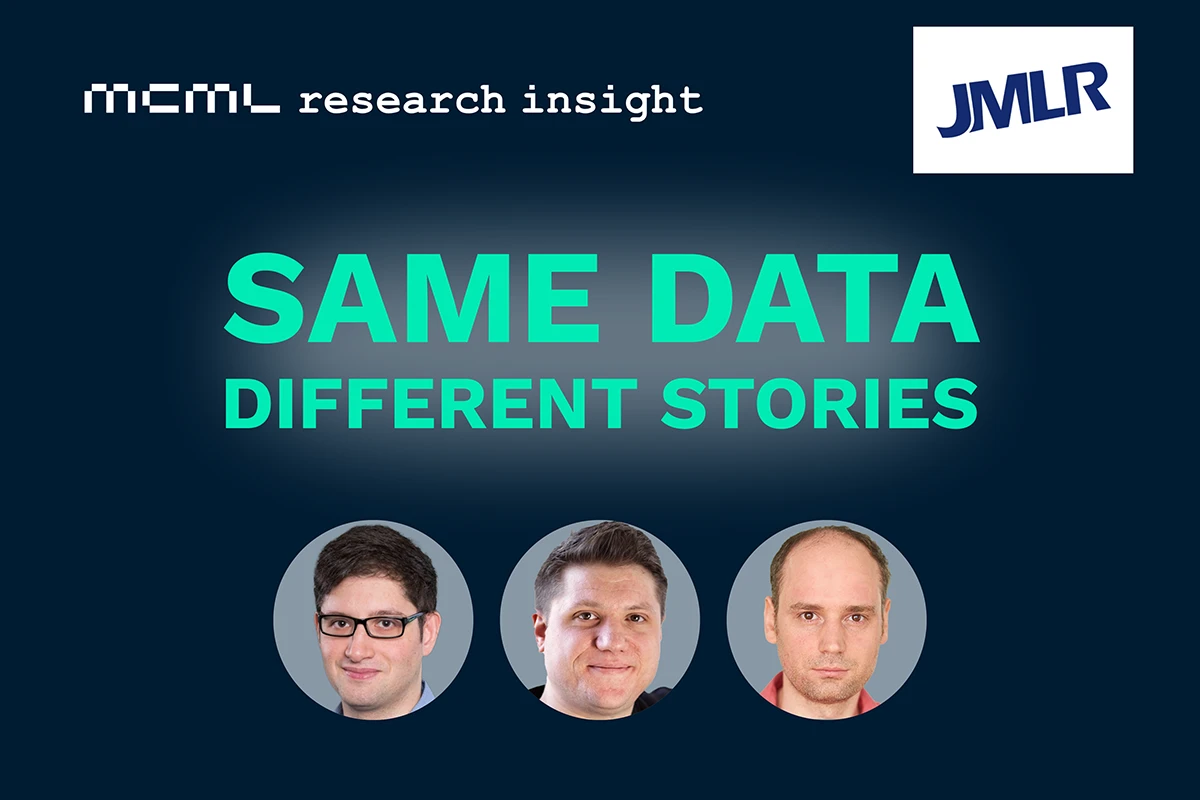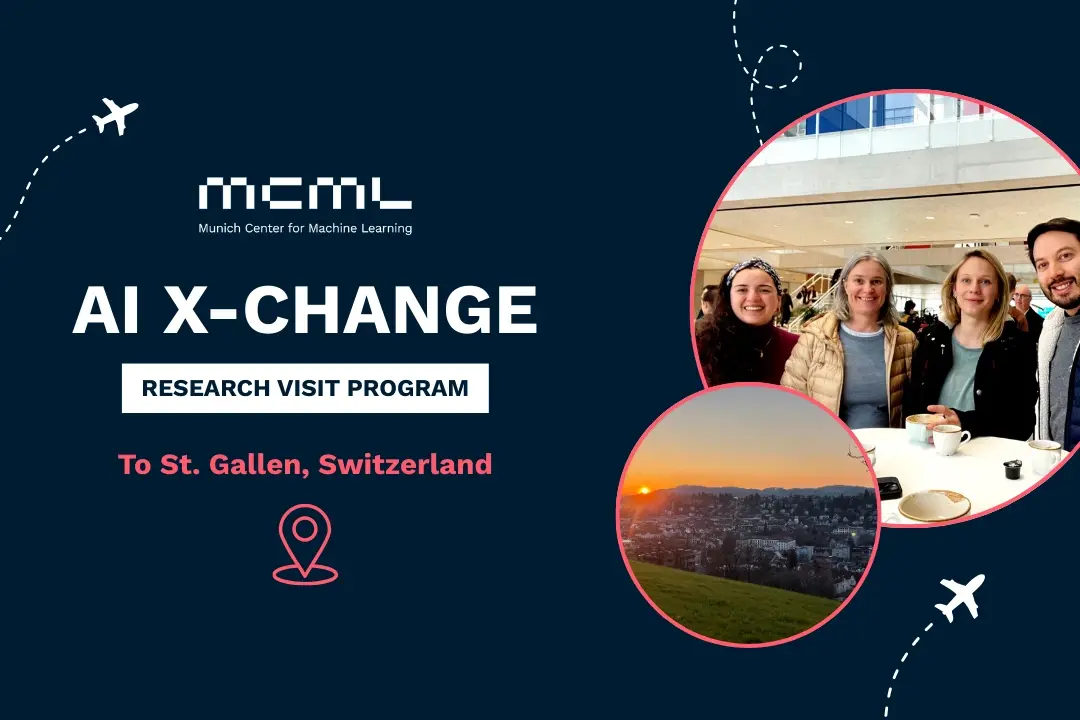17.09.2025
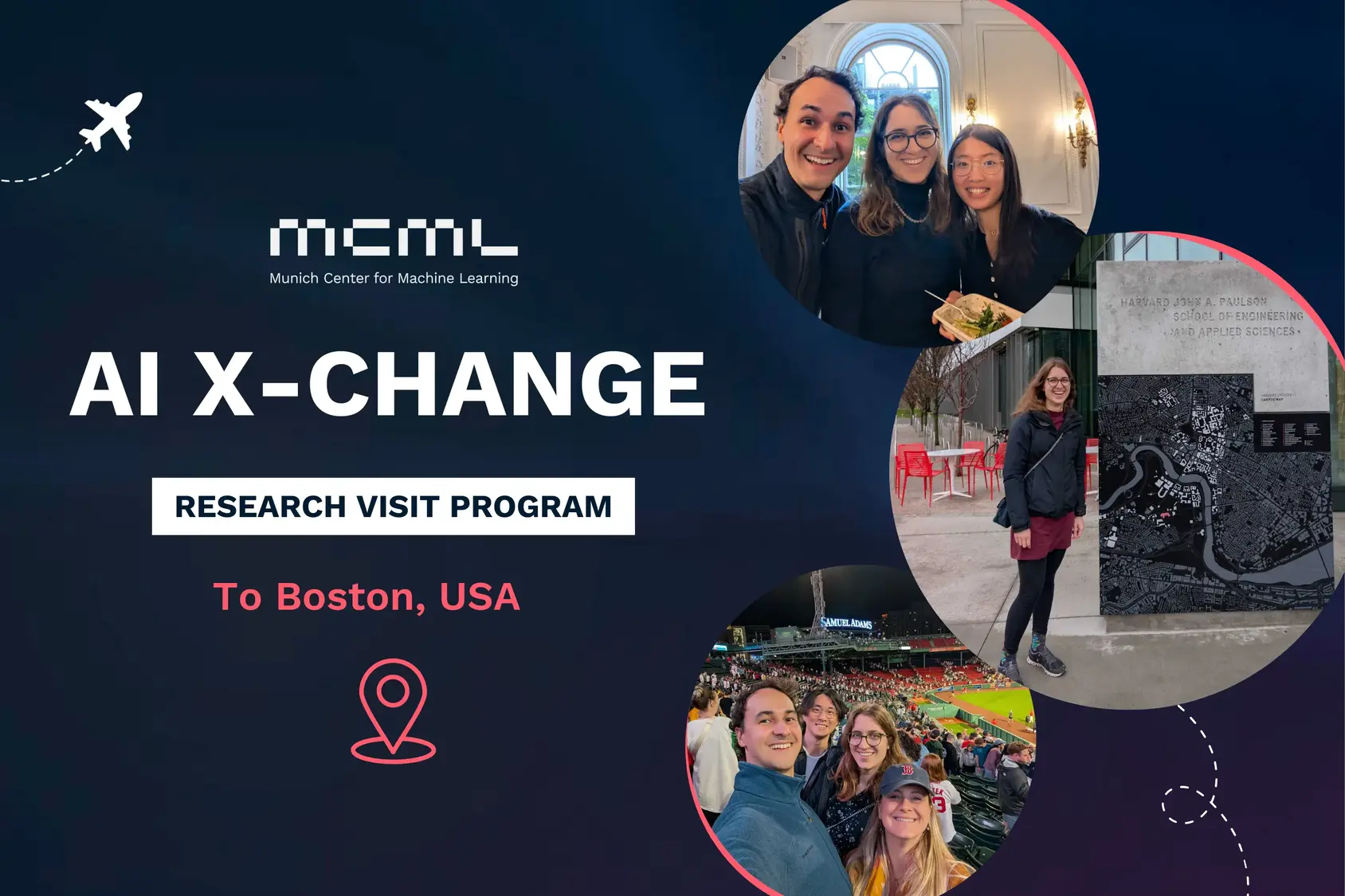
Research Stay at Harvard University
Hannah Laus – Funded by the MCML AI X-Change Program
This summer, I had the incredible opportunity to spend 11 weeks at Harvard University as part of the AI X-change program, visiting the group of Flavio Calmon at the Harvard John A. Paulson School of Engineering and Applied Sciences. The idea for this visit came after my former office mate and collaborator, Claudio Mayrink Verdun, a former member of MCML and PhD at TUM, moved to Harvard as a PostDoc. Since we had some ideas for new projects, and after meeting Flavio at NeurIPS last December, the plan to visit his group came together. I am very grateful to the AI X-change program for partially sponsoring this trip and making it possible, to Flavio for the kind invitation, and to Claudio for his support and collaboration during my stay.
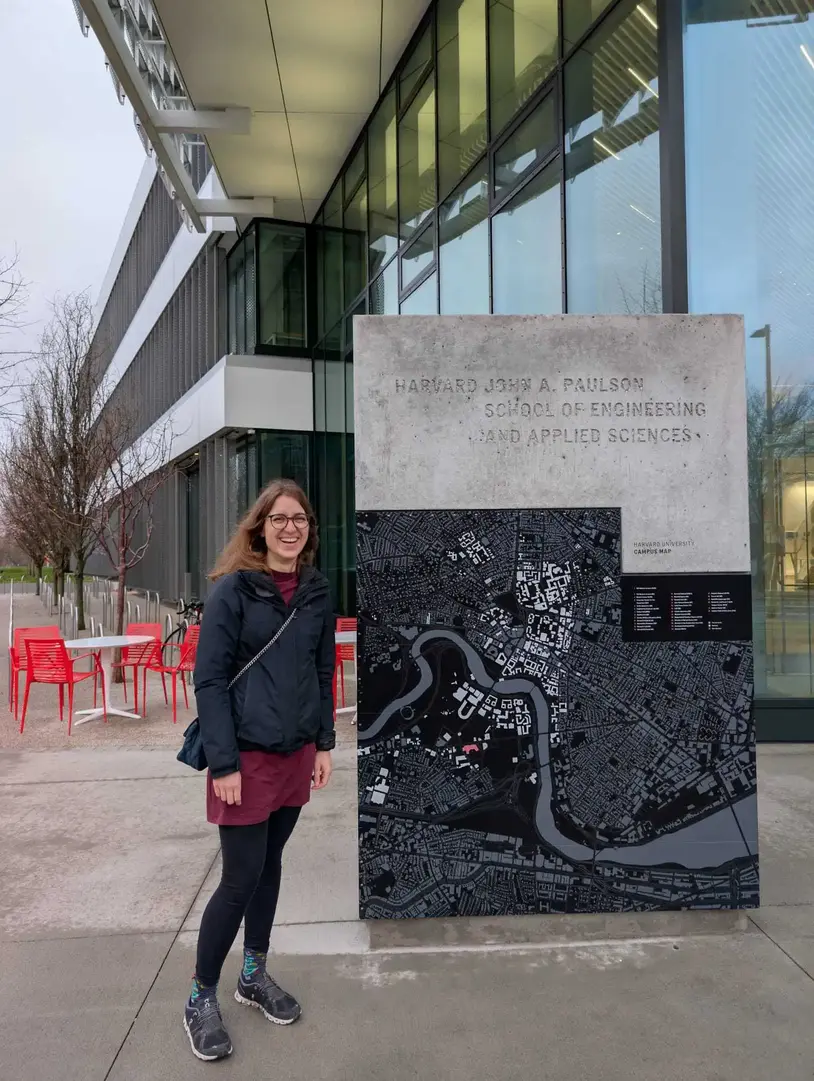
Myself in front of the Harvard SEC building, my workplace in Boston.
Research and New Directions
My PhD research focuses on understanding why and how machine learning works with the goal to create more robust and reliable algorithms. At TUM my research focuses primarily on inverse problems, but during my stay at Harvard I was introduced to the research world around large language models (LLMs) and started a project on key value cache quantization. LLMs are huge models and during inference time, when humans interact with them, they need to store a key and value for every past token e.g. for each word in a sentence. This storage is called the “KV (key value) cache”. As one can imagine, this quickly becomes quite memory heavy and computationally expensive. Therefore, quantizing the KV cache became an important research topic in the last two years. However the methods currently used are rather simple from a mathematical perspective. By applying more advanced mathematical tools, we hope to design more powerful approaches and make these models more efficient. Working with Flavio Calmon’s group was inspiring, as they are at the forefront of developing new information theory techniques and applying them to machine learning problems. The group’s scientific production spans a vast spectrum of topics from mathematics of information theory all the way to AI policy. Its members have a diverse background in mathematics, computational physics, computer science, electrical engineering and even law. This perspective—together with insights into LLMs—broadened my view of the field and highlighted the diversity of research questions the community is currently addressing. I also appreciated learning from my colleagues and discussing research with them. This inspired me to bring more of this collaborative spirit back to my own work in Germany by engaging with my colleagues and supporting each other with our different expertise.
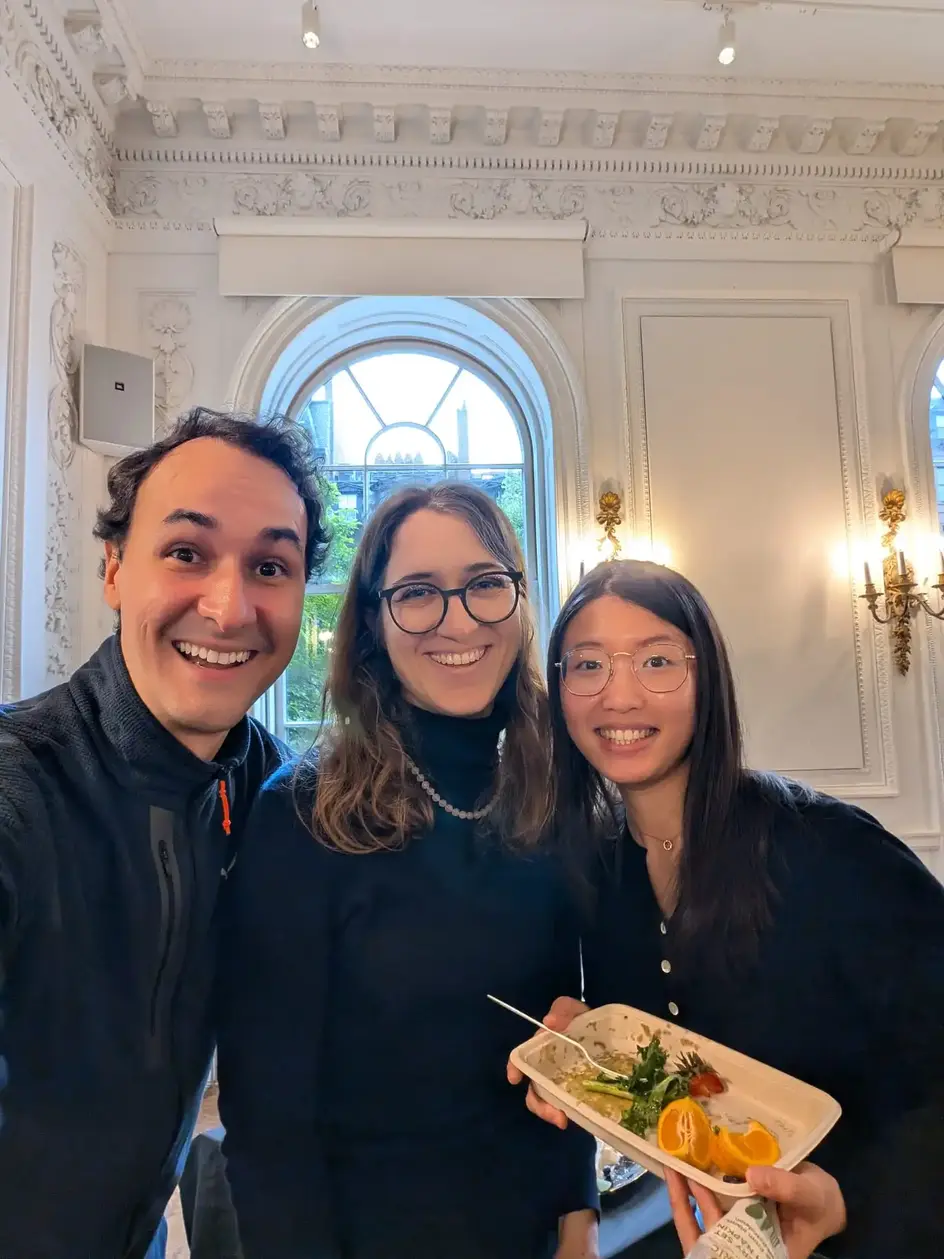
In the Goethe Institute during the MCML delegation visit with Claudio and Carol, a PhD student at Flavio's lab.
Academic Life at Harvard
My academic life in Boston was full of inspiring activities. I had the opportunity to attend lectures and talks at Harvard and MIT, participate in the Brazilian AI conference, join the MCML delegation visit and meet many fascinating researchers. In the end I also had the chance to visit collaborators in Chicago and to take part there in the Midwestern Machine Learning Symposium. To just elaborate more on one event, participating in the Brazilian AI conference at Harvard, organized by Flavio and Claudio, besides discussing technical advances and challenges in AI, I also gained valuable insights into the role of law in shaping AI. It is important to understand the affects of laws in different countries and talk to lawyers about the benefits and effects of those. It was interesting to see such an intense interdisciplinary event taking place with researchers from different backgrounds from industry and academia working together to solve an important problem such as the regulation and the societal uses of AI. There were people from Harvard, MIT, OpenAI, Microsoft, Google Deepmind, some prestigious Brazilian institutions like UNICAMP and even representatives of the Brazilian Ministry of Foreign Affairs.
Personal Highlights
Outside of academia, I made the most of my time in Boston. I enjoyed the excellent Harvard sports facilities right next to my building, lunches at the exquisite Harvard Business School cafeteria and even a Boston Red Sox baseball game (although they lost, unfortunately). I also explored some of Boston’s great art museums such as the Harvard Museum of Arts and Boston Museum of Fine Arts and spent my free time exploring the city with the bike or by foot, taking advantage of the fact that Boston is among the most bikeable cities in the US. Most importantly, I formed new friendships with amazing people, which I will always be grateful for.
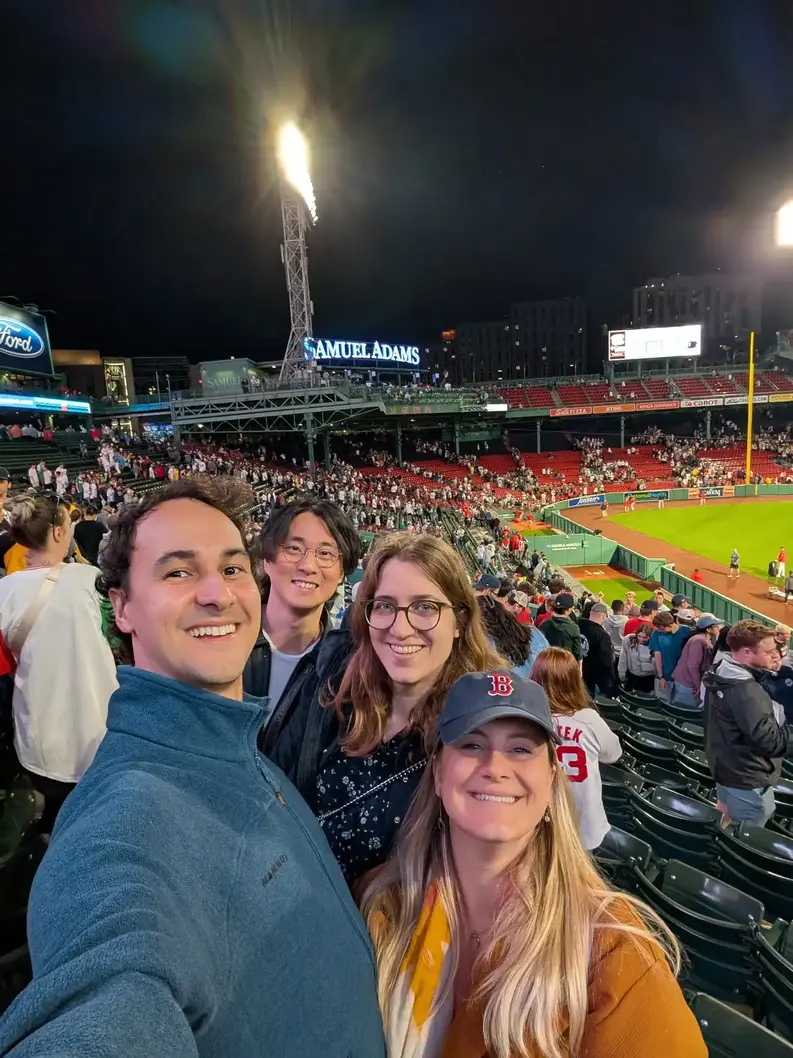
At the baseball game with Claudio and friends.
A Week in Chicago
At the end of my stay, I spent a week in Chicago visiting my collaborators Suzanna Parkinson, Vasileios Charisopoulos and Rebecca Willett with whom I recently completed a project and preprint called Solving Inverse Problems with Deep Linear Neural Networks: Global Convergence Guarantees for Gradient Descent with Weight Decay. Meeting in person gave us the chance to brainstorm new directions for our collaboration, and I’m excited to see where these ideas will lead.
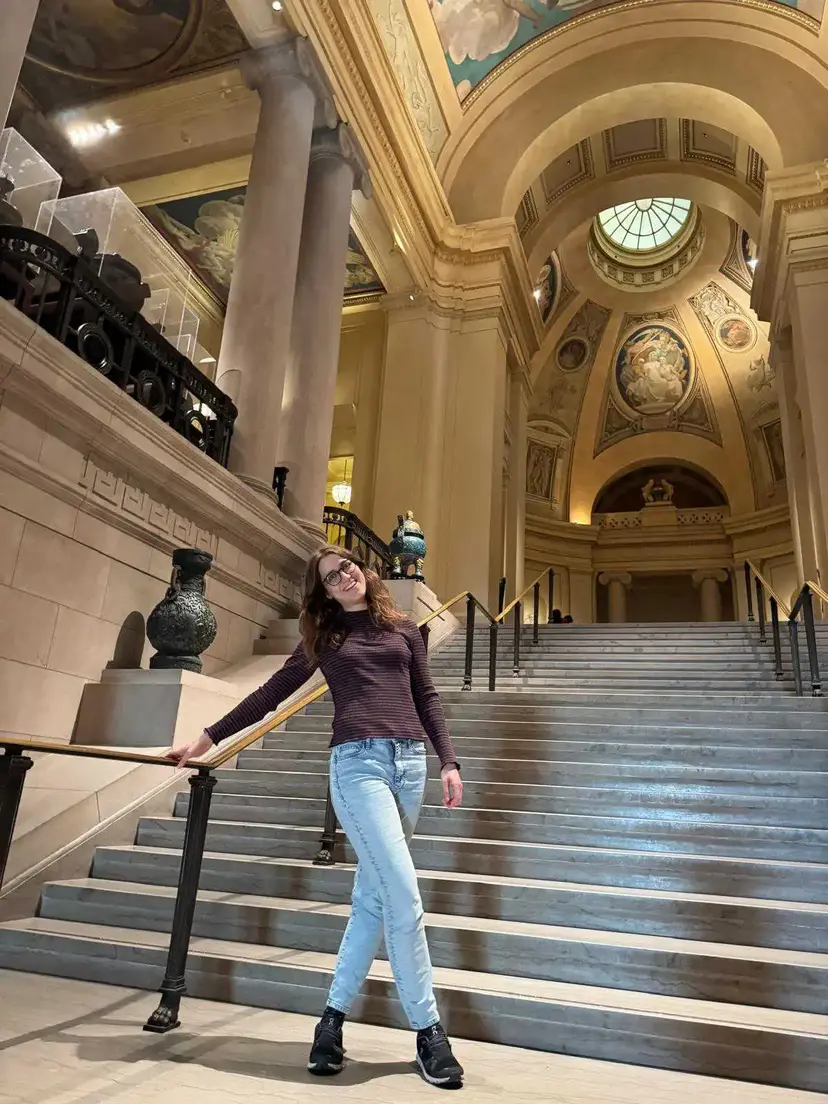
Myself in the Museum of Fine Arts in Boston.
Reflections
Looking back, my time at Harvard was a fantastic opportunity. Besides giving me the opportunity to dive into a new research area it also allowed me to experience life in a different academic and cultural environment. On a professional level, it broadened my perspective on machine learning and inspired new research ideas. On a personal level, it gave me memories and friendships I deeply value. If you are thinking about a research stay abroad: do it! Expanding your horizon is invaluable for your research and personal life.
Related
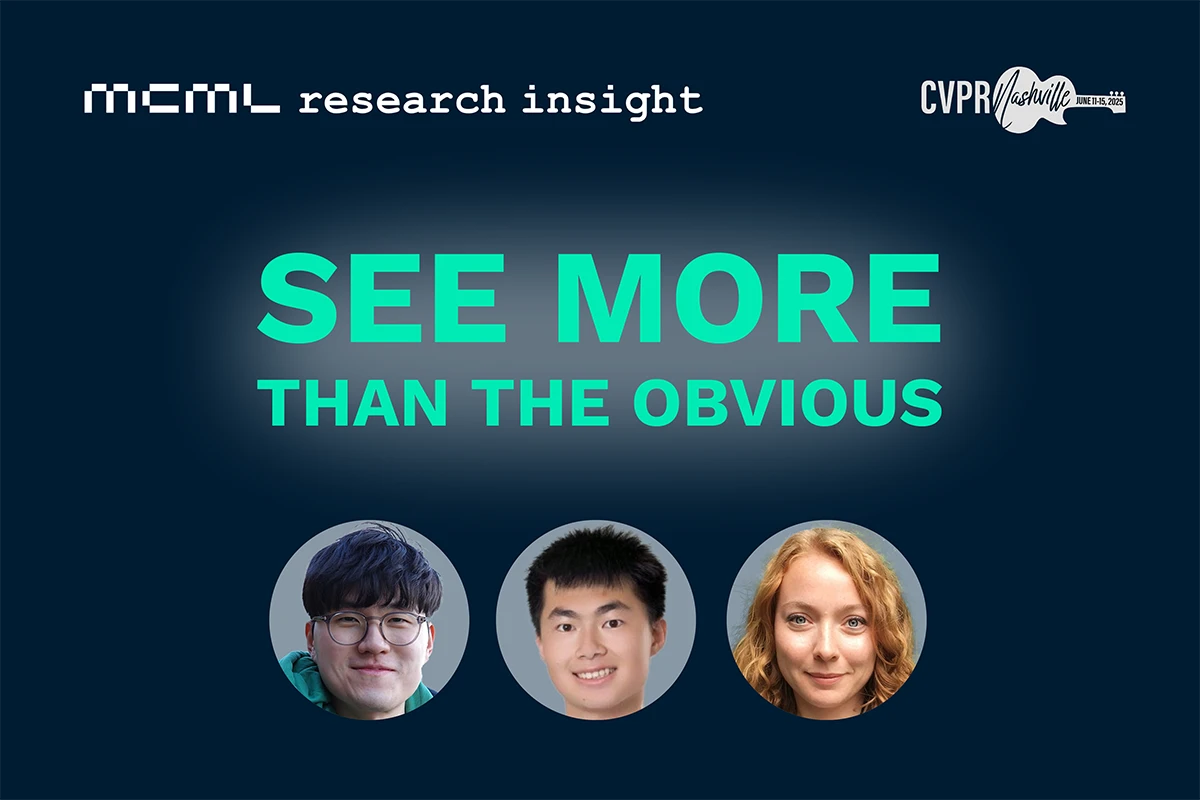
19.02.2026
COSMOS – Teaching Vision-Language Models to Look Beyond the Obvious
Presented at CVPR 2025, COSMOS shows how smarter training helps VLMs learn from details and context, improving AI understanding without larger models.
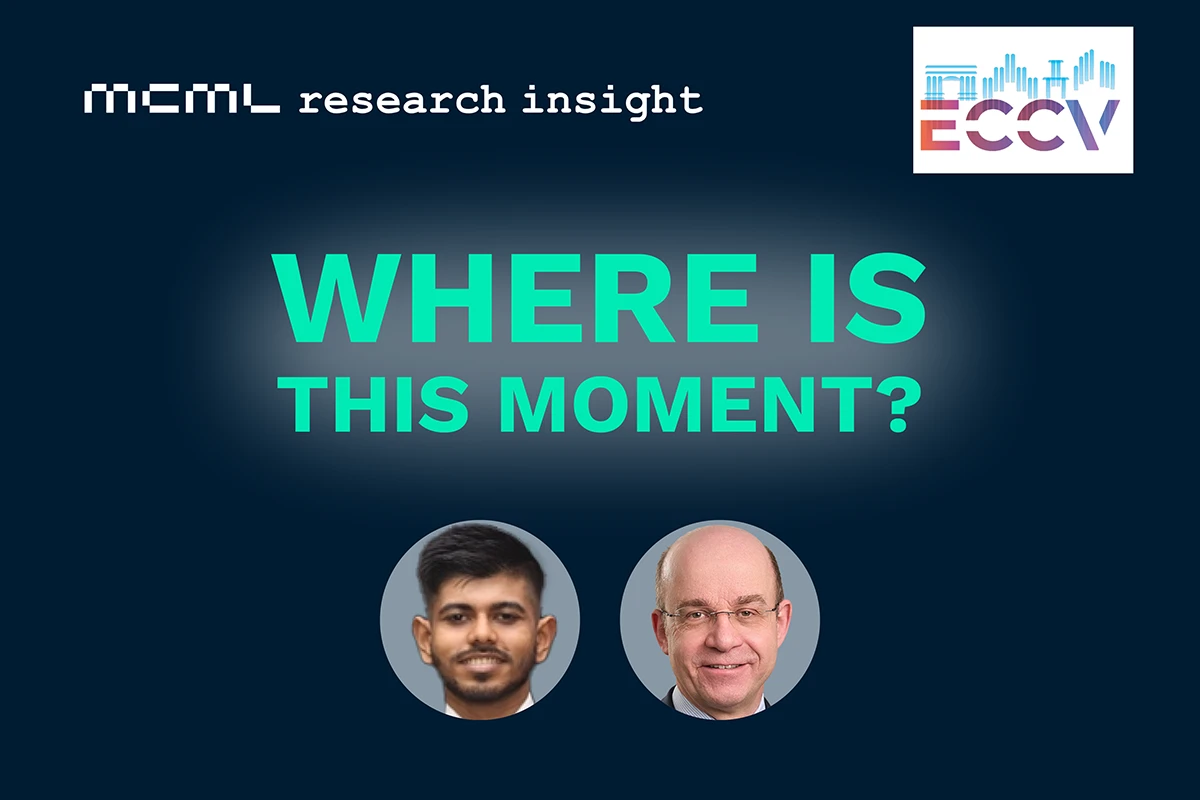
05.02.2026
Needle in a Haystack: Finding Exact Moments in Long Videos
ECCV 2024 research introduces RGNet, an AI model that finds exact moments in long videos using unified retrieval and grounding.
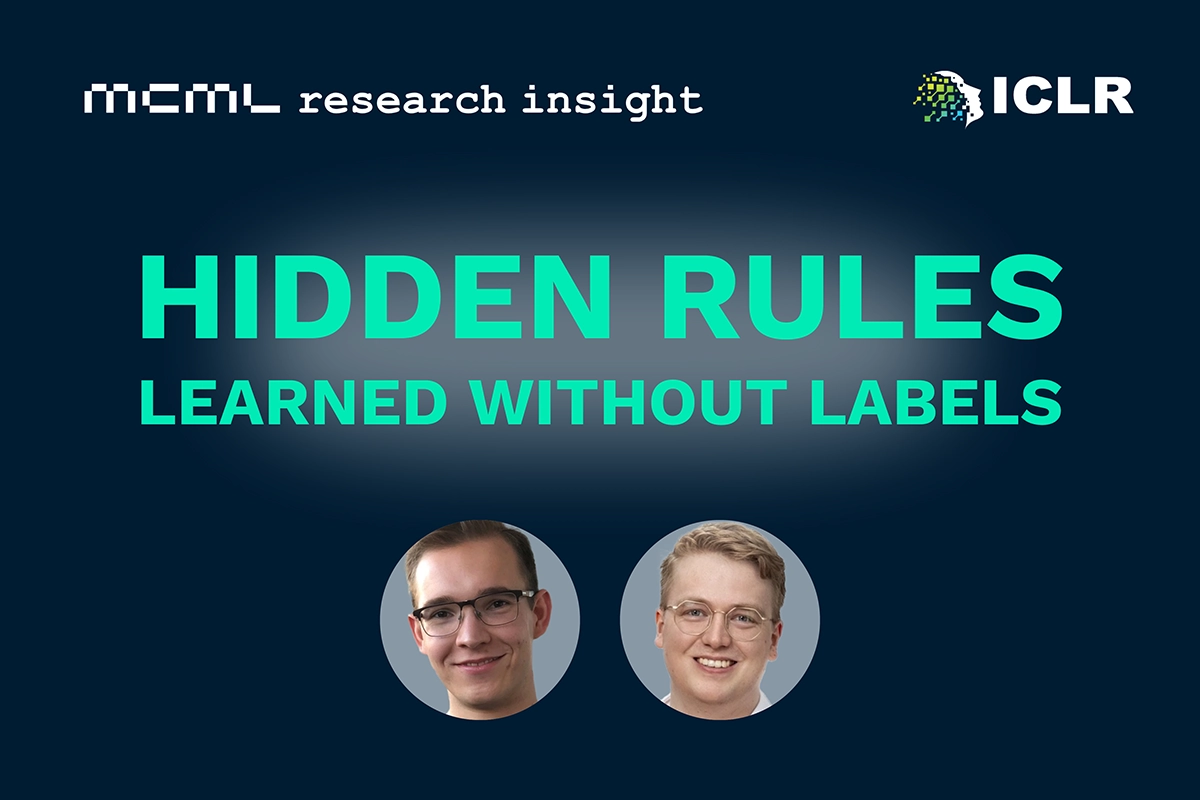
29.01.2026
How Machines Can Discover Hidden Rules Without Supervision
ICLR 2025 research shows how self-supervised learning uncovers hidden system dynamics from unlabeled, high-dimensional data.
